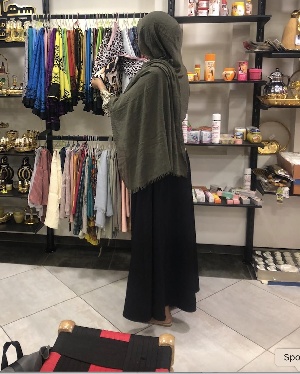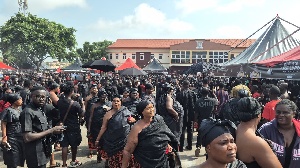Africa News of Thursday, 5 June 2025
Source: www.ghanawebbers.com
Africa: Entrepreneurship As Resilience - Sudanese Women, Displacement, and the Remaking of Home in Exile
Sudan War Series: Exploring Displacement and Entrepreneurship
The Sudan War series is a collaboration between CEDEJ-K, SNAC, and African Arguments. It focuses on themes like war, displacement, identities, and capital. Sudanese researchers share their experiences as displaced individuals. They highlight the dynamics within communities affected by war and envision possible futures.
Displaced persons are often seen as vulnerable. In contrast, entrepreneurs are viewed as bold risk-takers. Our encounters with women who fled the war in Sudan revealed new insights. Many had established micro- and small businesses in neighboring countries. Their stories showed how entrepreneurship takes on new meanings in exile.
Impact of the War on Families
The war that began in April 2023 forced families to flee with little. Among the 3.5 million seeking refuge was Maryam's family from Khartoum. They faced challenges rebuilding their lives in a new city. Initially, many hoped for a quick return home, believing the conflict would end soon. As fighting continued, families adapted to local work restrictions while seeking livelihoods.
Remittances from relatives abroad became crucial for survival. These funds helped cover basic needs during prolonged displacement.
Gender Dynamics in Employment
Research shows women found it harder for men to secure jobs or start businesses. Traditional roles pushed men to seek business opportunities requiring significant capital. Some men even considered returning to Sudan rather than staying behind.
In contrast, women were primarily caregivers but could keep their income if they worked. This dynamic allowed more opportunities for women to engage in business activities at home.
Entrepreneurship Among Displaced Women
Displaced Sudanese families live in various locations based on economic factors. The women we spoke with came from middle-class backgrounds and settled nearby each other. This growing community created a market for Sudanese products and services.
Their businesses included restaurants serving traditional food, shops selling goods, and beauty salons. Some produced cosmetics and art while others sold at galleries or bazaars organized by fellow displaced individuals.
Coping Through Business Ownership
For many displaced women, entrepreneurship offers more than financial survival; it provides purpose amid chaos. Maryam shared how her gallery serves as a refuge for women facing discrimination in their host society.
These businesses create spaces where they can gather and support one another over coffee or tea—offering comfort amid loss.
Maryam describes her gallery as a "small Sudan," emphasizing its role as a haven away from home.
Class Privilege and Economic Independence
Opening businesses highlights these women's privileged positions despite losing much due to war. Remittances help cover basic needs while allowing some financial independence through business revenues.
Women’s earnings enable them to purchase luxuries without straining family resources—like clothes or cosmetics—helping them reclaim class identity amidst upheaval.
While navigating financial hardships, these women's stories reveal complex gender dynamics within households after displacement.
Some out-earn their husbands but remain dependent on remittances for stability—a precarious balance of independence and reliance on others' support.
Conclusion: Resilience Through Entrepreneurship
The experiences of Sudanese women enrich our understanding of immigrant entrepreneurship beyond economics alone. Their journeys illustrate resilience amid adversity while negotiating gender roles within host societies.
Randa Hamza Ibrahim Gindeel is an Associate Professor focused on sustainable rural development at Ahfad University for Women in Sudan with expertise in conflict research and gender studies.
Ann Cathrin Corrales-Øverlid is a Postdoctoral Researcher at the University of Bergen specializing in international migration studies across various regions including Africa.











